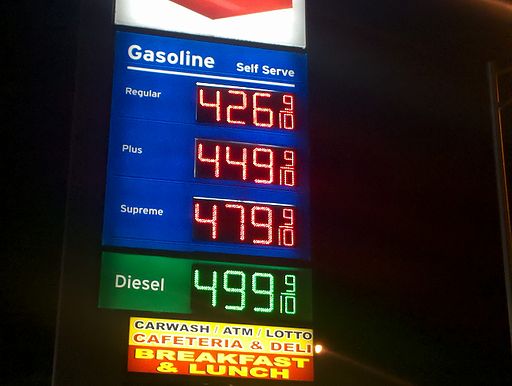 With prices increasing by the day in Chicago and in the suburbs, state governments are being asked to intervene in the issue which could have an important role in this week’s congressional elections and on into November.
With prices increasing by the day in Chicago and in the suburbs, state governments are being asked to intervene in the issue which could have an important role in this week’s congressional elections and on into November.
“Local and state legislators basically can’t do anything about gas prices,” said Dick Simpson, a political science professor at University of Illinois at Chicago. “They are mainly dictated by market availability and speculation, so little can be done.”
State governments could temporarily lower taxes, said Simpson, but since Illinois is cash-strapped, he doesn’t see Springfield taking that route.
“It’s definitely an issue being brought up in the Illinois congressional election this week,” he said.
Concern about the price hike can be felt in the state legislature, said Steve Brown, spokesman for Illinois House Speaker Michael Madigan (D-Chicago). “But our experience in the past has shown that there’s not much state legislators can do in that regard.”
Brown said there’s been an increase in the domestic production, but gauging and speculation ultimately dictate the prices.
“We’re expanding the amount of oil being produced, so we should ask the industry why the prices keep going up,” he said.
Illinoisans pay some of the highest prices for gas in the country, especially those living in Chicago and surrounding counties, according to the latest Lundberg survey on fuel prices.
While the national average price of gas reportedly rose to $3.76 a gallon this week, Chicagoans pay a much higher figure: the average price per gallon in the city is $4.21, accordingto Chicagogasprices.com, and experts say it can spike another 60 cents by May.
“We’re essentially following the typical spring template right now,” said Tom Kloza, of the Oil Price Information Service. “But I think it’s going to turn into a chaotic spring with huge price increases in some places.”
Kloza predicts average prices to peak at $4.05 nationwide, but he and other gas price trackers say numbers could be a lot higher in large metropolitan areas, such as New York, Los Angeles and Chicago.
“I don’t believe $5-a-gallon gasoline is a part of your future, or the future of most markets across the country,” said Kloza, a veteran oil analyst. “The gasoline futures market and the gasoline spot markets always get sloppy drunk, and they are buzzed at the moment.”
Refinery issues in the Chicago area play into the high prices, said Patrick DeHaan, an energy analyst for GasBuddy.com, “as well as a unique blend of gasoline that’s specific only to Northeast Illinois and Southeast Wisconsin.”
In a press conference last week, President Obama emphasized the importance of switching to alternative sources of energy and that “there’s no silver bullet” to lower the price of gasoline.
“High gas prices hurt families,” the president said.
Before she started feeling the gas price jump in her pocketbook, Dominique Milici used to fill her tank during visits to her boyfriend’s house in suburban Bensenville, near O’Hare.
“I didn’t use to pay attention until the prices passed the $4-a-gallon mark,” said Milici, a junior at Northeastern Illinois University. “Now it’s a pain to get gas in the city.”
According to Chicagogasprices.com, prices in the suburbs can be significantly lower: It ranges from $3.89 per gallon at the Costco station in Mount Prospect to about $4.20 in some stations in Buffalo Grove.
A Gallup survey earlier this month revealed that Americans, on average, would change the way they live if gas prices hit $5.30 to $5.35 per gallon.
The survey also showed 85 percent of adults said the president and Congress should “take immediate actions to try to control the rising price of gas.”
Related articles
- Proposed legislation would increase gas tax (chicagotalks.org)













Be First to Comment